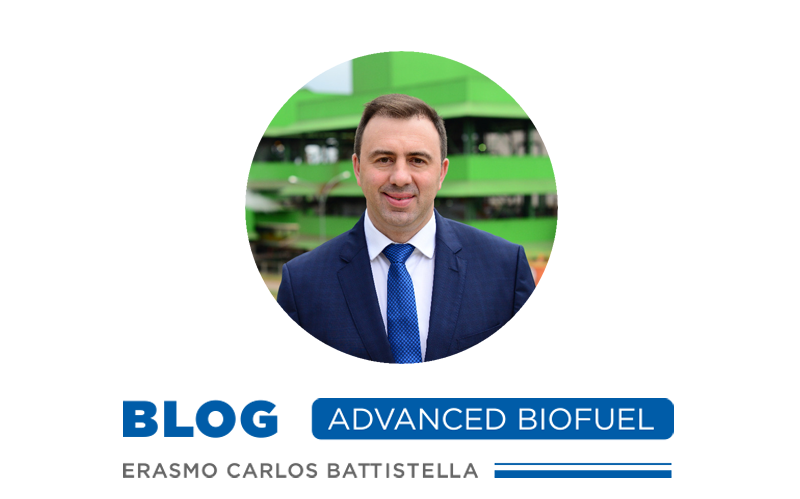I would like to share with the Blog readers the presentation I gave last September 10th about the Omega Green project and the advanced biofuel SPK (Synthetic Paraffinic Kerosine) during the Evaluation Seminar of the International Civil Aviation Organization (ICAO). It is the UN (United Nations) agency created in 1944 to promote the safe and orderly development of international civil aviation. The headquarters is in Montreal, Canada.
The aviation sector seeks to comply with the definitions of CORSIA (Carbon Offsetting and Reduction Scheme for International Aviation, translating the English acronym Carbon Offsetting and Reduction Scheme for International Aviation). Advanced biofuels will play an important role in the aviation industry’s pursuit of these GHG (greenhouse gas) reduction targets.
CORSIA expects to make this reduction from the GHG base produced in 2019. The international agreement will come into force in 2021 and will have three phases:
- Pilot Phase (2021-2023) – Voluntary Regime, for each country (the countries of the European Union chose to join the regime at this stage);
- 1st Phase (2024-2026) – Voluntary Regime;
- 2nd Phase (2027-2035) – Mandatory Regime.
As all the countries of the European Union joined the regime from the beginning and based on the projected participation of other countries, it is estimated that this scheme will compensate and reduce about 80% of emissions above the levels of 2019.
Several innovative solutions were presented to unlock the current and future potentials for reducing CO2 emissions in the aviation sector. In addition to themes for the areas of technology, operations and sustainable aviation fuels.
On the occasion, I highlighted the Omega Green project, a complex for the production of renewable diesel HVO (Hydrotreated Vegetable Oil) and SPK in Paraguay. It is the first second generation renewable fuel plant in the Southern Hemisphere.
I stated during the event that we need the strong commitment of countries and politicians to define systems of regulation and public policies to help the air, cargo and passenger segments to reduce emissions through the use of SPK.
The SPK, which will be manufactured at the Omega Green plant, can operate at -45 ° C, ideal for use by airlines, an industry that needs effective solutions to reduce CO2 emissions. The most interesting thing is that the technology that we are going to use in the new plant already produces this biofuel in the northern hemisphere and the same SPK has already been approved for use in large aircraft. We are working hard to offer aviation kerosene of high quality and certified by the most important entities in the sector.
Although we do not recognize the pollution caused by a means of transport that is 30 thousand feet so directly, the strong negative impact that the airplane has on the environment is certain. The sector has done little or almost nothing to reduce greenhouse gases and will need to work hard on technology to achieve its emission reduction targets by 2050. The arrival of a new fuel without the need for an engine change will play a very important role in this aviation sector.
ICAO
ICAO works with the Convention’s 193 Member States and industry groups to reach consensus on International Civil Aviation Standards and Recommended Practices (SARPs) and policies to support a safe, efficient, economically sustainable and environmentally responsible.
SARPs are used by ICAO Member States to ensure that their local civil aviation operations and regulations comply with global standards, which allows more than 100,000 daily flights on the global aviation network to operate safely and reliably in all regions of the world.


1 comment
Parabéns Erasmo, seu interesse pelo biocombustível iniciada à 10 anos atrás, está levando nosso País a uma Categoria Sustentabilidade Ímpar, muito nos têm orgulhado com suas iniciativas.
Continuado Sucesso, Brasil precisa de empreendedores do seu tamanho.